Last Updated on June 4, 2025 by Michelle
I’m growing 6 herbs for my chickens this year. Well, before you think I’m a crazy chicken lady, I should explain…
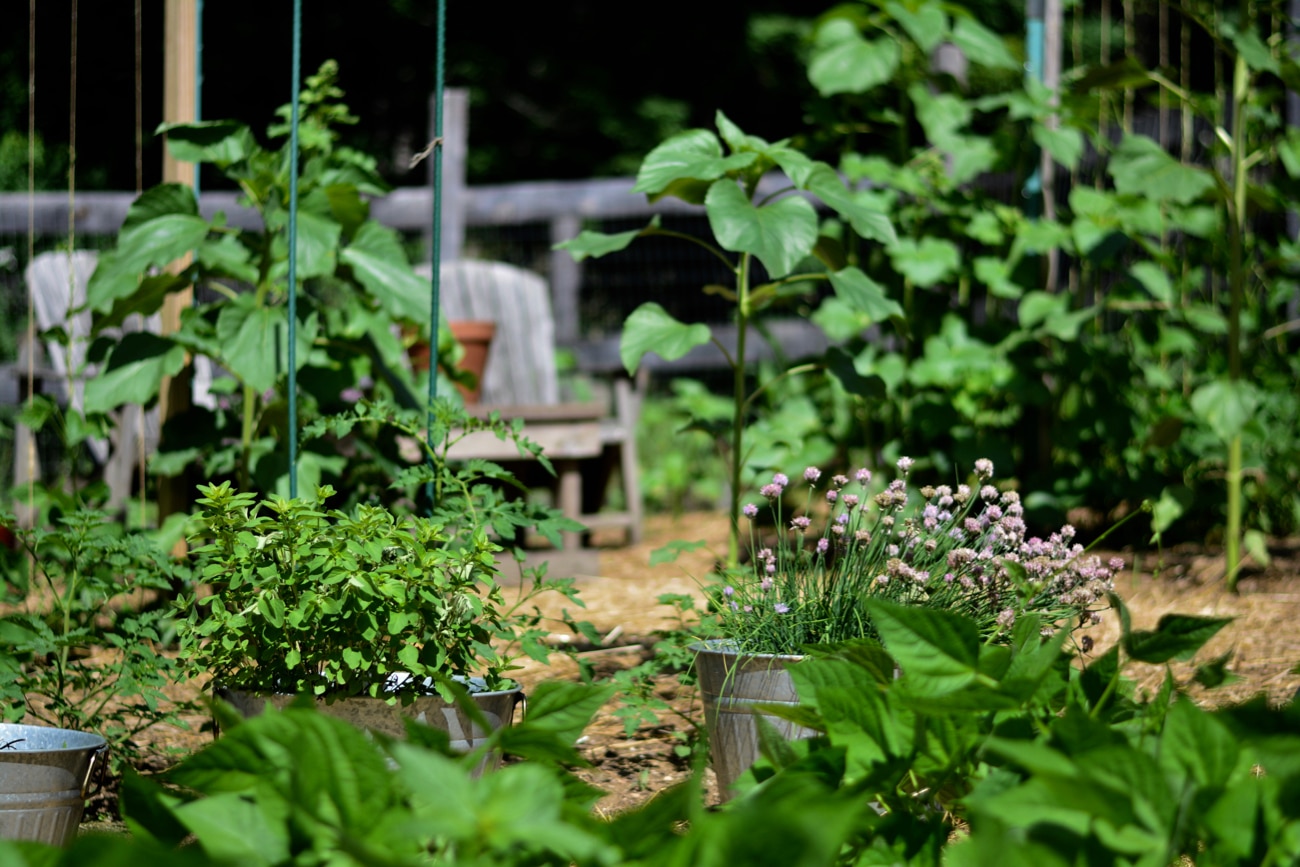
I’m all about dual-purpose, so these 6 herbs are ones I would be growing for our family even if I didn’t have chickens.
But I love it that these herbs serve both my family and the chickens very well.
If you’d rather listen than read, I got ya covered, with my latest podcast episode:
How I Use Herbs for My Chickens
While you can simply feed these herbs to your chicken, my hens are kinda odd. They don’t really eat the things I hear other chickens devour. I assume it’s because they’re free-ranging hens who have their run of the property, from sun up until sun down.
I love that they can free range because it makes a huge difference in our flea and tick population, plus it’s fun to see them meandering up to the back kitchen door many times a day to visit me beg for kitchen scraps.
My guess is because they have all the grass, and clover, and bugs, and worms you can imagine at their disposal, a plate of greens doesn’t do much for them.
But I will dry my herbs and crush them into the chicken food in the winter. A little dried herbs sprinkled over their same-old-same-old layer pellets makes for some very happy hens on a cold February day.
Even so, they seem to love it the most when I put fresh herbs in their laying boxes to spruce up the place. Anything that will keep them happily returning to their boxes, instead of hiding their efforts in a big hide-and-go-seek game around the farm, is a great win in my book.
6 Herbs I Grow for My Chicken
So today I thought I’d list out the 6 herbs I’m growing this year that both my family and my chicken seem to enjoy, to give you an idea of some great herbs to feed your chickens or leave scattered in their coop and nesting boxes.
Then below my current list, I’ve included an even more complete list of poultry-happy herbs. So keep scrolling.
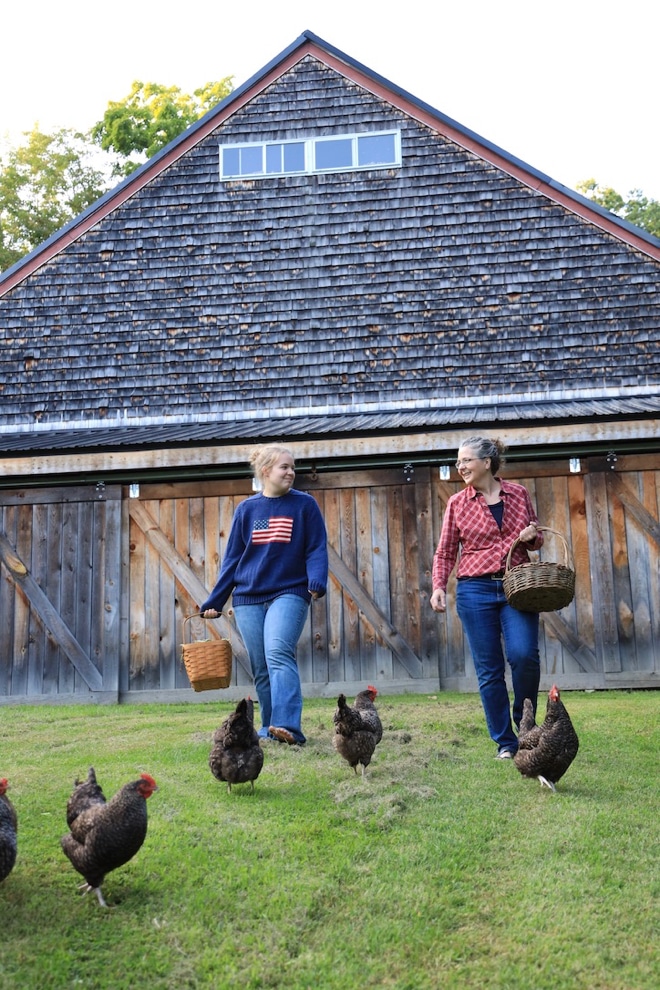
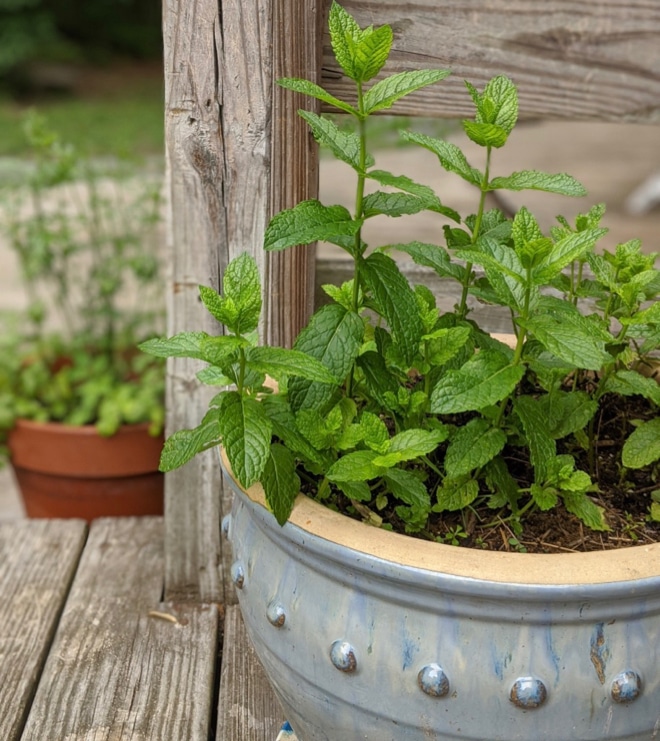
Using MINT for chickens & using MINT in the kitchen
Mint in the kitchen
Mint is such a useful, versatile herb. If you’re only going to grow one, mint is the one I recommend. My favorite ways to use mint, both freshly picked and dried, is to make a soothing, delicious cup of warm tea and to flavor my second ferment of kombucha. While mint is great as a stand-alone kombucha flavor, it’s even better paired with a favorite fruit, from strawberry to blueberry, blackberry, raspberry, and beyond.
If you’d like to know more about how to make your own probiotic, gut-healthy, carbonated, delicious kombucha, here’s my library of articles about kombucha, and here’s more information about my course, Simple DIY Kombucha.
Mint for chickens
Just like it does for us, mint can calm a chicken’s stomach if they’re not feeling too great. It also may offer a calming, de-stressing effect for hens, making it a great addition to nesting boxes and even dust bathing areas.

Using OREGANO for chickens & using OREGANO in the kitchen
Oregano in the kitchen
Family pizza night and homemade pizza wouldn’t be quite the same without crushing some of our home-grown oregano into the sauce. But we also love it on roasted veggies and over roasted chicken and potatoes.
Oregano for chickens
Oregano strengthens a hen’s immune system, and folks even argue it fights against common poultry illnesses such as salmonella, infectious bronchitis, avian flu, and e-coli. Now that’s an herb that really knows its way around a chicken’s health.
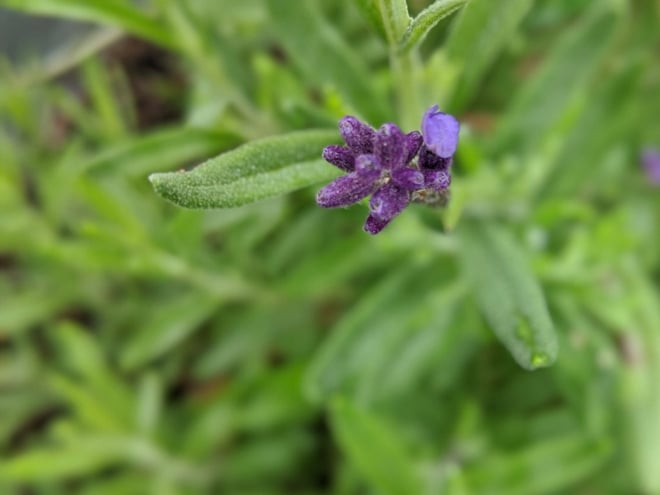
Using LAVENDER for chickens & using LAVENDER in the kitchen
Lavender in the kitchen
While my favorite thing to do with lavender has nothing to do with the kitchen, I do use it there too. (My favorite use, btw, is to lay a bundle of dried lavender in my drawers and enjoy the wonderful smell when I put on a shirt or socks I’ve pulled out of those drawers.)
Lavender is a key ingredient in one of my favorite DIY Kombucha options: Lemon Lavender. Mmmmm. And lavender sugar is truly delicious to use in any way you use sugar.
Go here for full directions for making floral sugar.
Lavender for chickens
Just as the calming, soothing effects that the smell of lavender brings to us when we get a whiff of it, it has the same impact on a chicken. Which is extra nice if she’s in the daily stressful situation of laying an egg. So this is my favorite herb to line their nesting boxes with.
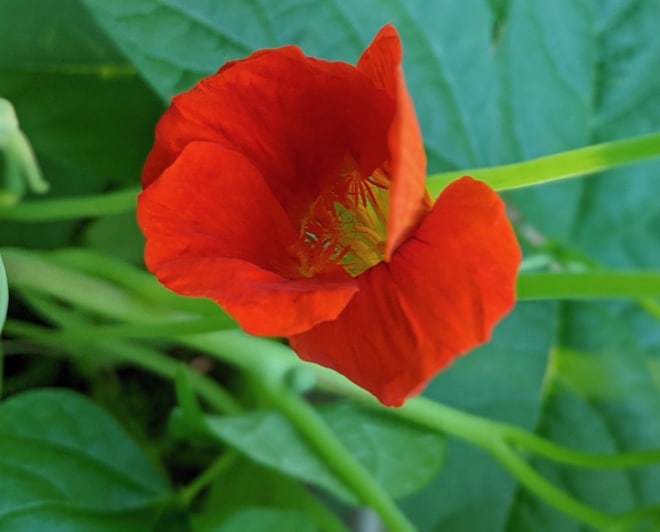
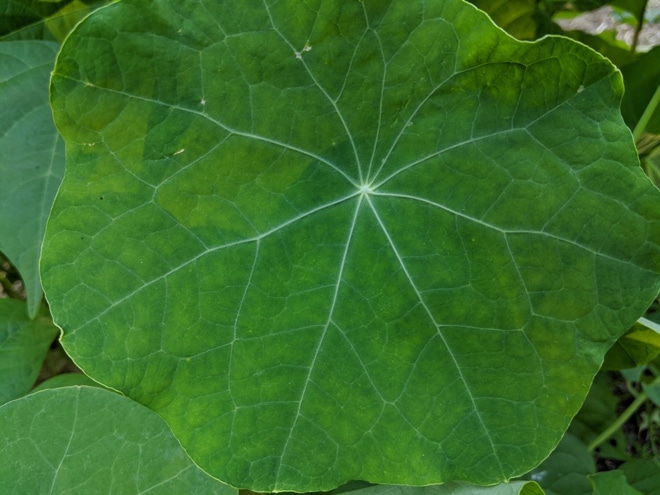
Using NASTURTIUM for chickens & using NASTURTIUM in the kitchen
Nasturtium in the kitchen
This year is my first ever to grow nasturtium, so I’ll have to keep you posted on how I like using this herb. I’ve been told that both the leaves and the bloom have a distinctly peppery flavor, so I’m intrigued to try adding them to soups, Kung Pao Chicken, vinaigrettes, and tossed salads.
I planted the nasturtium for one purpose only this year. I’m using it as one of many weapons against the dreaded squash beetle that made my blood boil and devastated my squash last year. But I love it that it is useful for both my kitchen and my chicken coop as well.
Nasturtium for chickens
I’m told that chicken enjoy eating both the leaves and the flowers of the nasturtium, which are good for the hens because they are naturally antibiotic. We’ll see if my chickens choose to snack on them (if not that’s okay, it leaves more for my salad).
Using BASIL for chickens & using BASIL in the kitchen
Basil in the kitchen
Pesto. Scrambled eggs with basil, chives, and everything bagel seasoning. And all things Italian.
Then there’s the Strawberry Basil Kombucha. (Just add 1/4 cup frozen, cut-up strawberries & 1 TB chopped fresh basil to your 1/2 gallon second ferment.) Need I say more?
Hop over here for all the recipes for my family’s favorite DIY Kombucha recipes. And make your own everything bagel seasoning too.
Basil for chickens
Basil helps keep the hens healthy with its natural antibacterial properties.
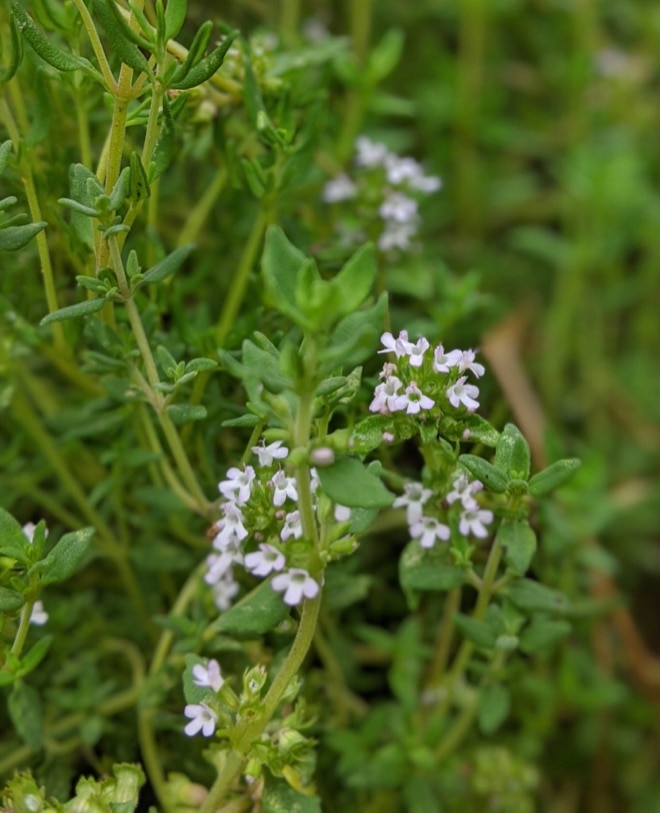
Using THYME for chickens & using THYME in the kitchen
Thyme in the kitchen
Thyme is a nice addition to meat, tomatoes, beans, eggs, and cheese. My favorite use for fresh (or dried) thyme is to add it to my omelets and souffle. It’s also a necessity for the thanksgiving meal, adding extra yum to both turkey and stuffing.
My grandma’s Souffle recipe is one of our favorite (super easy!) meals: See grandma’s souffle recipe here.
Thyme for chickens
Thyme helps a chicken have healthy mucus membranes, so it’s great at assuring your hens have a healthy respiratory tract.
Believe it of not, thyme bundles hung around the coop or sprinkled in the laying boxes are a great way to keep pests at bay. In fact, most aromatic herbs make great insect repellents. Because no matter how wonderful fresh herbs may smell to us, bugs tend to hate (and stay away from) things with a strong smell.
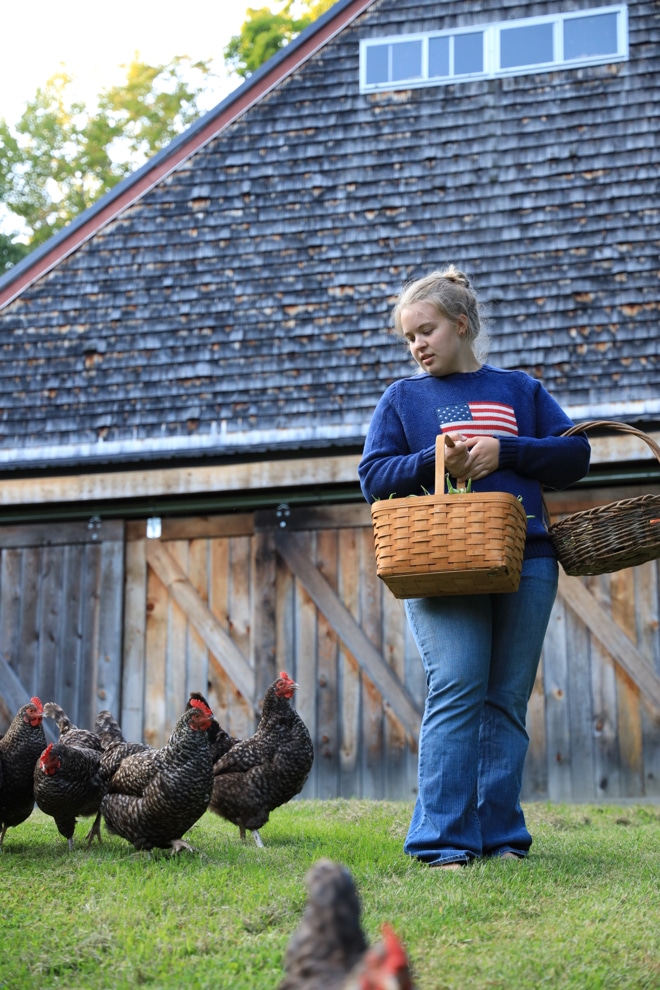
Take a Tour of my Vintage Coop
I say “vintage,” Bill says “falling down eye sore,” but I hope I can convince him it’s worth keeping. Even though he’d much rather tear it down and build a new fancy coop. What do you think?
Some Great Herbs for Chickens, in a Nut Shell
Here is a break down of some great herbs for your chickens & why:
- Basil – has antibacterial properties
- Lavender – highly aromatic and great stress reliever
- Marigolds – another stress reliever for the hens
- Marjoram – has a laying stimulant for chickens and is a detoxifier
- Mint – rodent repellent, digestive aid & lowers body temperature naturally
- Nasturtium – another laying stimulant
- Oregano – strengthens a hen’s immune system
- Parsley – high in vitamins and it’s another laying stimulant
- Rosemary – pain relief and respiratory health as well as a natural insecticide
- Sage – antioxidant
- Thyme – tackles respiratory infections
Other articles you’ll enjoy about raising chickens:
How I feed my chicken free snacks that they love.
If you’re raising young hens and have a rooster PLEASE READ THIS to avoid my awful mistake.
How we trained our dog–step-by-step–to not attack our free-ranging chicken.
More reading you’ll enjoy about gardening:
What every gardener needs to know about egg shells.
What every gardener needs to know about coffee grounds.
My absolute FAVORITE way to buy my herbs, trees, and other plants & they’re even having a sale right now! Whoo Hoo!
Oh, and if you’re looking for great herb seeds, look no further than this variety pack, or anything you find at TrueLeaf Market… my favorite source for all our seeds.
You care for the land and water it;
you enrich it abundantly.
The streams of God are filled with water
to provide the people with grain,
for so you have ordained it.
You drench its furrows and level its ridges;
you soften it with showers and bless its crops.
You crown the year with your bounty,
and your carts overflow with abundance.
Psalm 65: 9-11
Pin this for later!
Click on the image below to pin this post.
Find out why SoulyRested was considered to be one of the Top 20 Must-Read Homesteading Blogs of 2018 and then one of the Top Homesteading Blogs of 2019 as well.
Glance at my Resource Page if you’d like to get a glimpse of all the supplies I use and recommend for everything from gardening, to homeschooling, to chicken care, to nature journaling, to maple syrup making.
I’d love to connect!
To find me in some other neck of the woods, just click any (or every!) icon below:

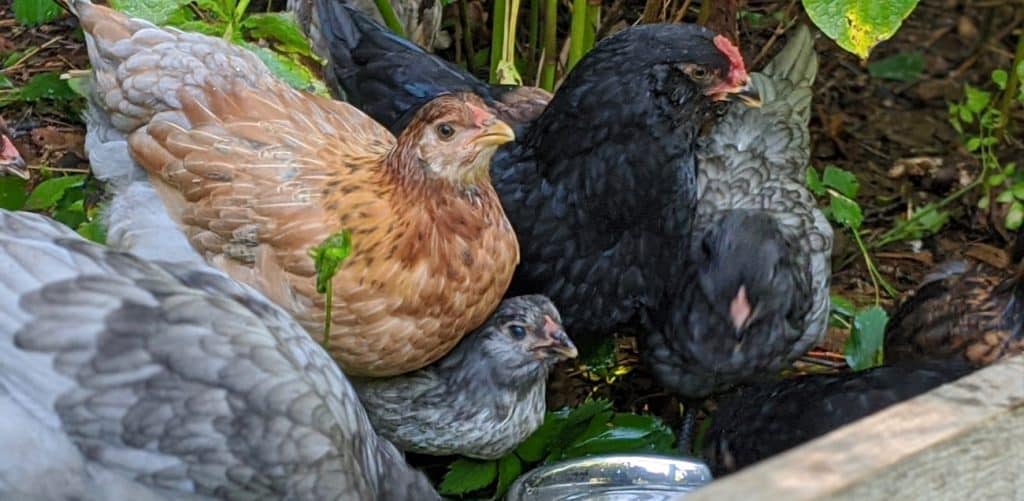
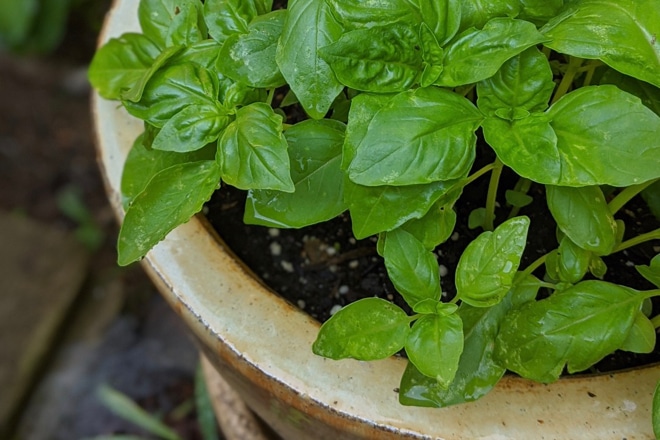
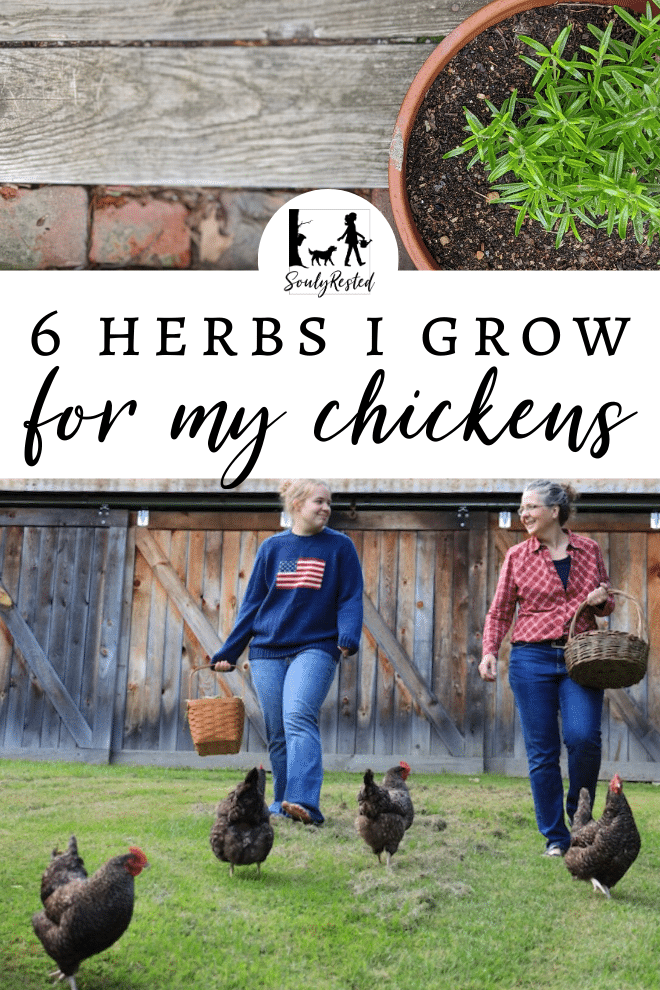






We have so many herbs growing in our greenstalks. We are going to have to plant even more now. 🤣 Thank you!
I LOVE this article about herbs and which ones are best for chickens. Your articles are so helpful!! I can’t wait to pass this on to my friends who are raising chickens.
Found the egg in the chicken article😍. I didn’t know that chickens could have nasturtium and mint, I will ad those to my garden this year for my girls. Thanks!
information here! Did I miss an herbs for chicken , if I did, please tell me where to find it
I found the egg!😊